Build Your Perfect Productivity System with FIRST
When I first started building my productivity system in college, I was under the impression there was a perfect system out there for me to discover. I thought if I could find that system I would have the answer to all my productivity problems.
No dice, my friend.
I learned over the years of searching for that elusive perfect system that such a thing does not exist. At least, it doesn't exist out there.
Turns out there is a perfect productivity system for me. And there's a perfect system for you. You just have to create it yourself!
I learned this truth as I attempted to adopt other people's systems. There'd usually be some piece of it that would work well for me, but never did they work 100%. I took the working pieces and combined them with others I'd borrowed from other systems. The result was a unique, tailored system fit to how I work best.
When productivity experts share their system, it’s the one they've perfected over years. It’s how they work best. You can get ideas from them, but you won’t be able to copy everything they’re doing wholesale. You need to put in the work to find what works best for you.
It's what the experts do.
By building your system yourself, you can in fact make your perfect system.
The system you make won’t stay perfect forever, though. Life is always changing from one moment to the next. Your system needs to adapt to whatever season of life you’re in.
I developed a set of guiding principles to follow as you continue to evolve your system.
Like all great frameworks, the first letter of each of these principles form an acronym, FIRST:
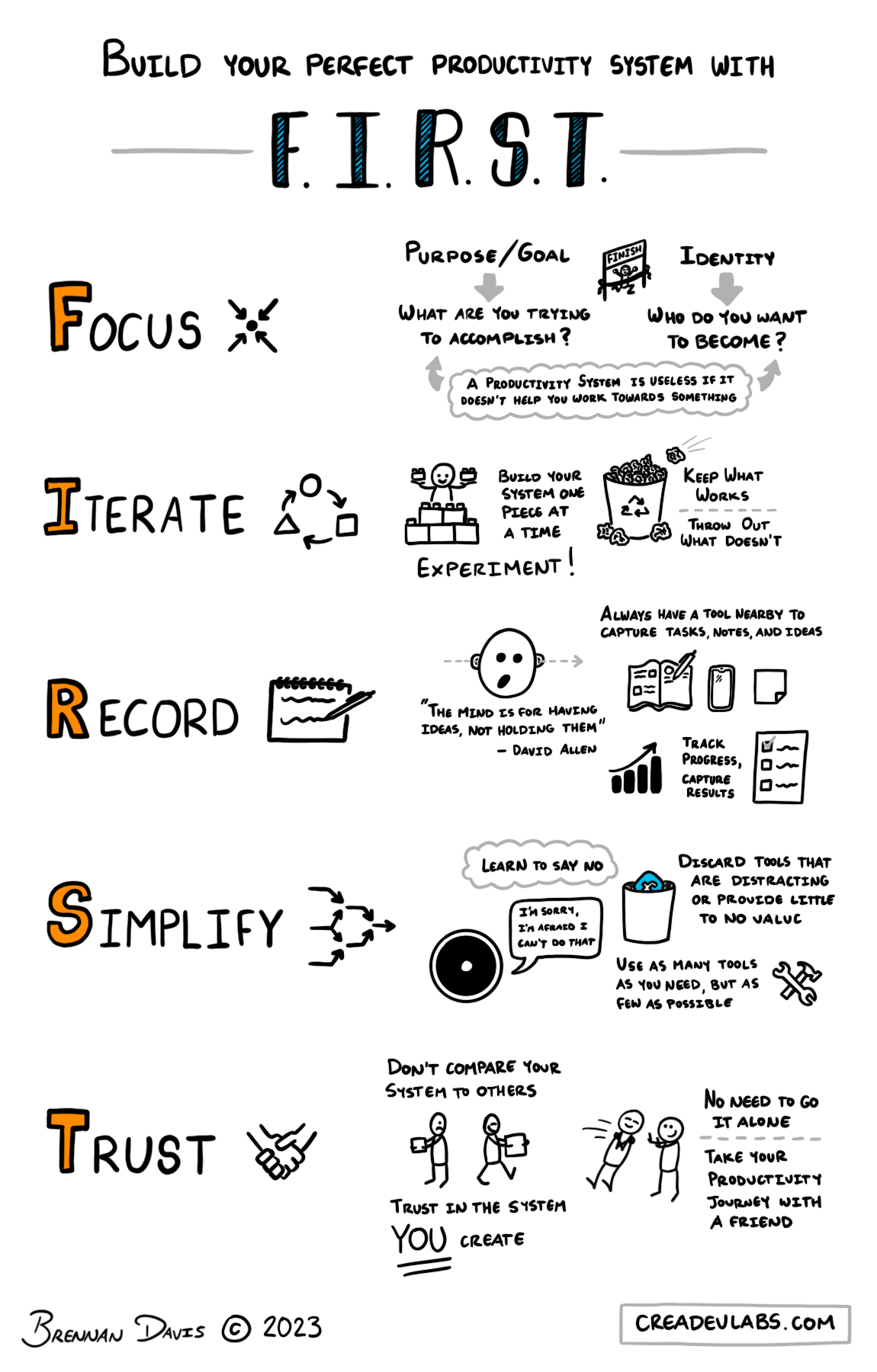
- Focus
- Purpose/Goal
- What are you trying to accomplish?
- Identity
- Who do you want to become?
- A productivity system is useless if it doesn't help you work towards something
- Purpose/Goal
- Iterate
- Build your system once piece at a time
- Experiment!
- Keep what works, throw out what doesn't
- Build your system once piece at a time
- Record
- "The mind is for having ideas, not holding them"
- David Allen
- Always have a tool nearby to capture tasks, notes, and ideas
- Track progress, capture results
- "The mind is for having ideas, not holding them"
- Simplify
- Learn to say no
- Discard tools that are distracting or provide little to no value
- Use as many tools as you need, but as few as possible
- Trust
- Don't compare your system to others
- Trust in the system you create
- No need to go it alone
- Take your productivity journey with a friend
- Don't compare your system to others
These principles guide me as I shape, evolve, and craft my perfect productivity system. They can do the same for you.
This article is the first in a series covering the principles in FIRST. In the next article I'll be diving into the first principle, Focus.

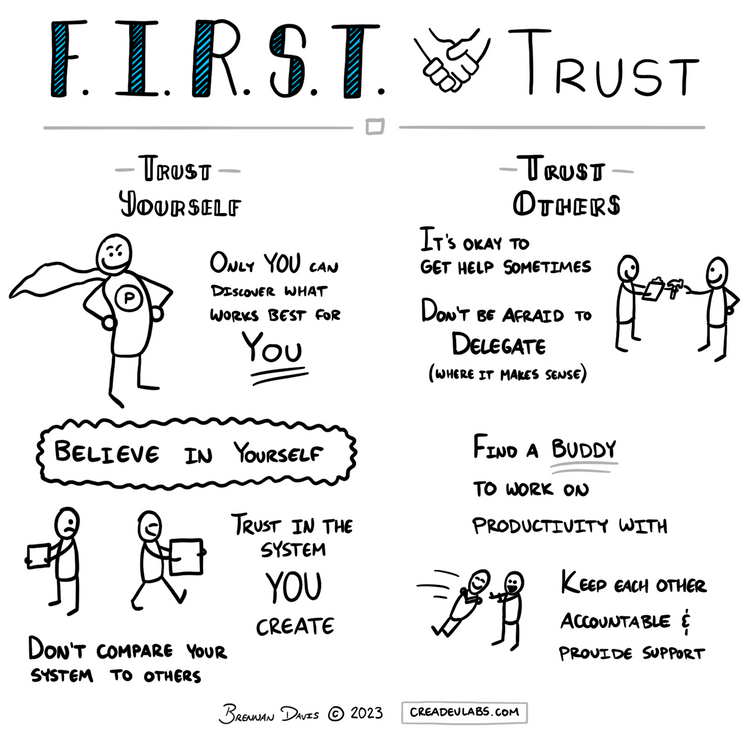
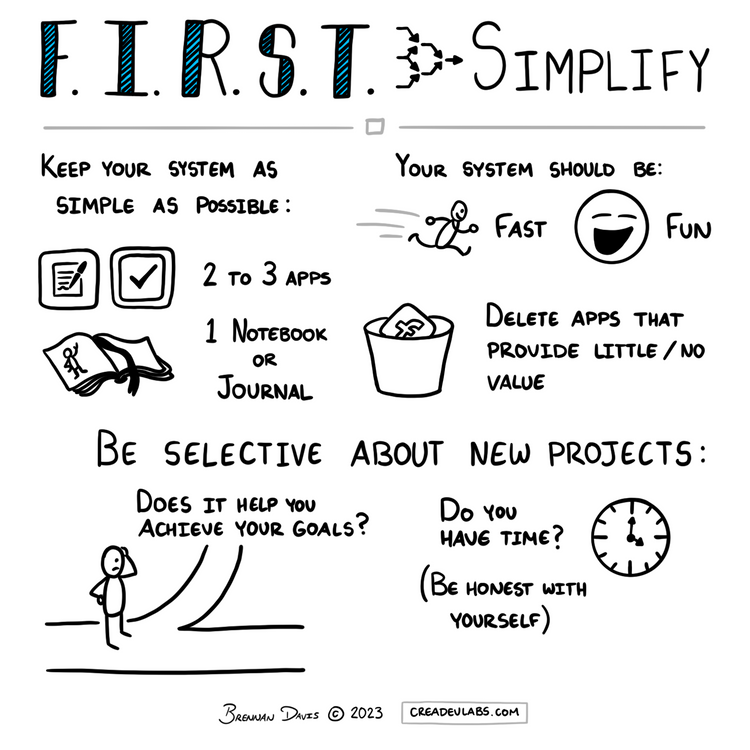
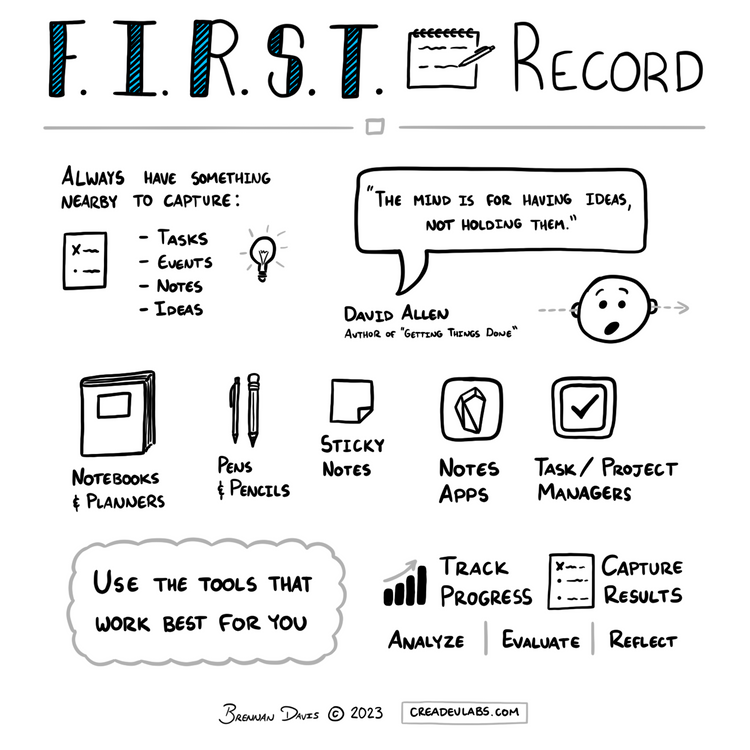
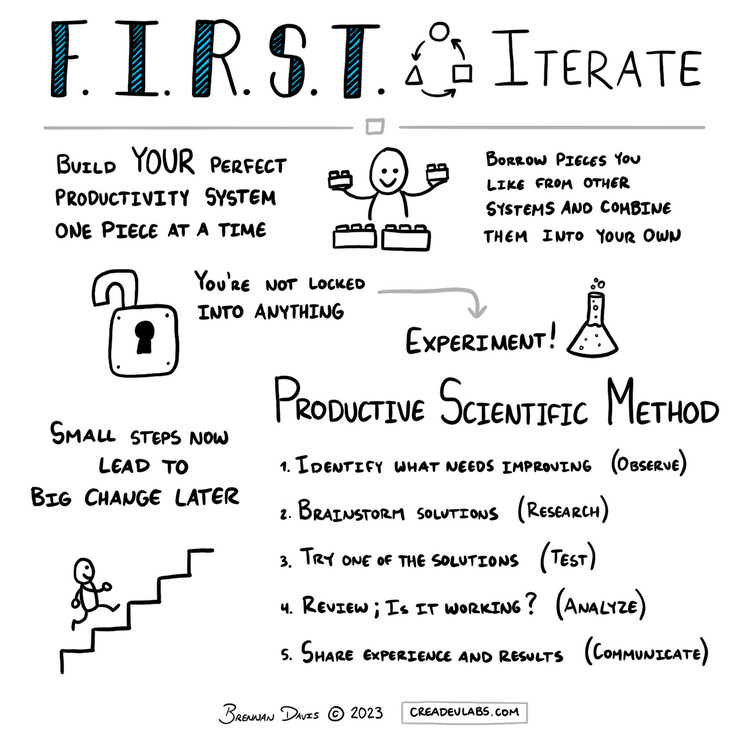
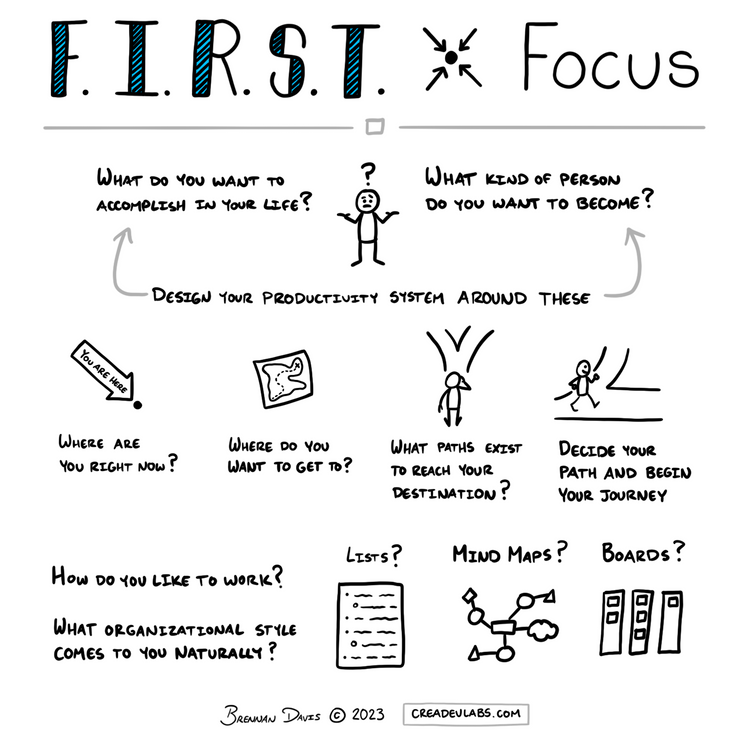
Member discussion